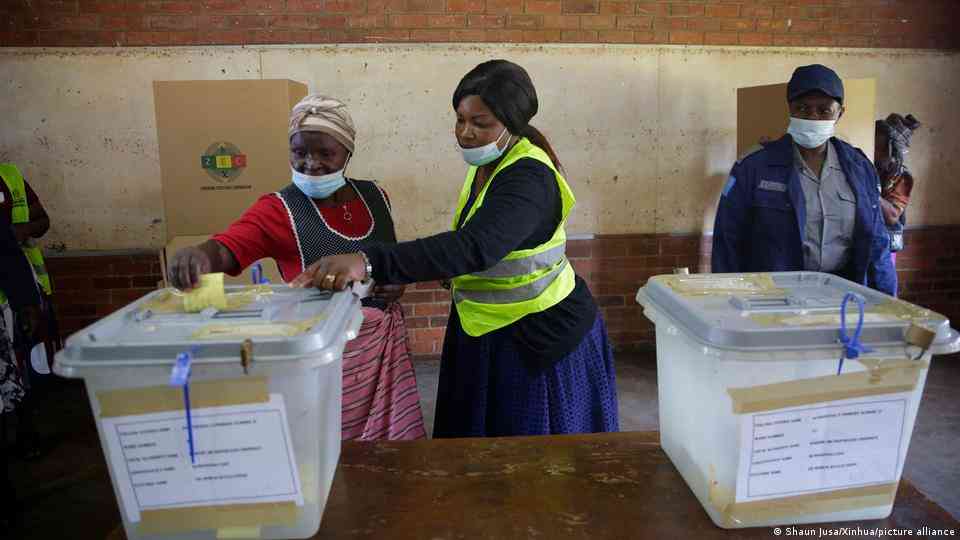
It’s over four months after the 2023 elections, and people must be getting a bit sober about what these politicians of ours stand for.
In the run-up to the polls, President Emmerson Mnangagwa was on steroids, saying all sorts of nice—weirdly nice, I say—things to voters in his 10 star rallies across the country.
One thing you will remember is what he kept saying about electricity.
Mnangagwa was always telling us that you could now buy as many tonnes of meat as you wanted and stash it in your fridge and it would never go bad because electricity was here to stay.
He claimed that they had fixed things at the Hwange thermal power station and other places, to the extent that Zimbabwe would soon be a net importer of electricity, to paraphrase the president's words.
Many people would choose to give hope a chance in this regard because, for a change, power cuts were minimal.
Down South, in contrast, power cuts were so bad you would think Mzansi was never going to see light till Judgment Day.
It was pretty the same in Zambia, Malawi, etc.
- Impractical reality of free education
- Corruption Watch: After the polls, back to the gloom
Keep Reading
So, given the easy availability of power in Zimbabwe — something we hadn’t seen for ass years — the campaign peg by Mnangagwa and his party, Zanu PF, was always going to be tempting. For the typically gullible electorate.
But now you can see how different the sound bites are from actual reality. We are back to the dark days, and they are getting even darker.
Do you notice the coincidence?
The elections are over, and the days are getting dark, darker. We probably had the darkest festive season in three decades last year. And the excuses are getting thick, thicker.
That says one thing. The abundance of electricity in the election season was just a smart tactic to buy votes. It was a bait.
They knew pretty well what would happen once they won. They knew that, in fact, the abundance of power was staged-managed to sweet-talk the voter.
Now that the elections are over and they are still in power, who cares about whether or not there is darkness?
Do the sensible thing. Buy meat that you can finish on the same day.
Buy charcoal, if you can, and press your clothes with those pressers that our ancestors used.
Industry?
Of course, industry can go to hell. And if you are going to die of cholera because there is no electricity to power the waterworks — leave alone the chemicals — that’s your problem.
There will be enough people to lie to at the 2028 elections!
The list of culprits is long, comrades, very long.
When you see and hear them at election time, they are never worried about you beyond your correct X on the ballot in the booth. That’s the thing.
Look at Cowdray Park in Bulawayo.
Mthuli Ncube, Zimbabwe’s paper Finance minister, wanted to get that one at the last elections, after being parachuted into the ruling Zanu PF structures from the void.
Well, he lost. That’s not where the story lies. People contest and lose.
That dude sank mega thousands into his campaign for Cowdray Park, which as one of the largest but poorest suburbs in Zimbabwe, awoke to the pleasant surprise of how politicians can turn things around for them with all sorts of pleasantries.
Mthuli built roads, introduced nurse aid courses because he knew Zimbabweans wanted to, ironically, use that route to trek to the UK as carers, connected households to the power grid and even provided free Wifi to the residents of the constituency.
The minister even fixed a house for himself — probably illegally — in the area as a clever optic.
What happened after that is painfully predictable. After losing, Mthuli became a tortoise, almost literally.
He withdrew into a shell. He didn’t even want to contest the by-election in the constituency.
Now it’s back to ground zero.
No water, no power, blinking Wifi, uncompleted nurse aid courses and, you guessed right, the typical gloom.
Needless to say, people of Cowdray have to go to his worn-out posters if they want to remember how he looks like.
It’s clear that Mthuli didn’t care about the Cowdray citizens, but their votes.
Then there is the Scott Sakupwanya case. Scott of Zanu PF withdrew the services that he was extending to the Mabvuku-Tafara residents in Harare when he lost in the first round of the August 23-24 parliamentary polls.
He had poured in more than a million greenbacks to win the seat, going to the flamboyant extent of bringing in and exhibiting American boxer, Floyd Mayweather, just to show how monied he was.
But the people of Mabvuku-Tafara wanted the opposition, so Scott withdrew the free buses and potable water from the constituency when he lost.
But he won in the by-election that followed because the winning candidate was disqualified after being recalled by Sengezo Tshabangu.
What will happen going forward doesn’t matter because his intentions are already known.
Even the opposition is not free from blame.
We have heard of cases whereby aspiring opposition councillors and MPs also dismantled boreholes and other things they had set up to bait voters.
This is one thing that makes Zimbabwean elections such a sad idea to follow.
It’s much based on materialism, to the extent that on a scale of one to 10, politicians who seek office are doing it not because they intend to develop their constituencies, but to get into power as an eating mechanism.
And it has become such a culture that in order to get into power, one must buy his or her way through.
Do you then blame the electorate? Yes and no. Yes, because the voting public is easily swayed by material things rather than ideas.
If you are going to ask people why they voted the way they did, chances are that they wouldn’t be able to say, outside that the candidates promised them more material things.
No, because Zimbabweans sourly need to be educated on how to vote.
They lack voter literacy.
They always fall prey to the opportunistic and greedy politicians who promise them heaven on the basis of the trinkets they dangle.
Which means that the people never vote on the basis of ideas.
*Tawanda Majoni writes in his personal capacity and can be contacted on [email protected]









